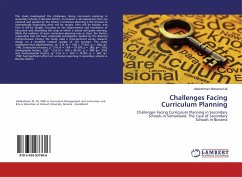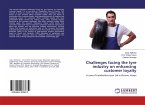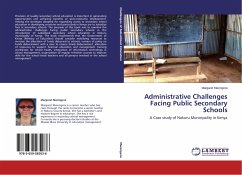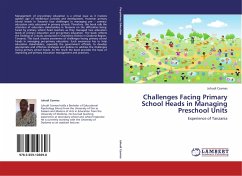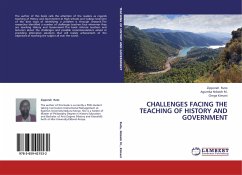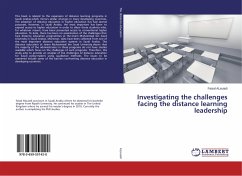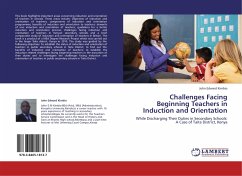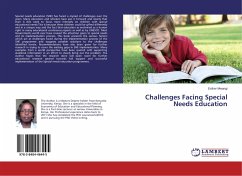This study investigated the challenges facing curriculum planning in secondary schools in Borama district. Curriculum is all experiences that are planned and guided by the school. Curriculum planning is the process of systematically organizing what will be taught, who will be taught, and how it will be taught, focusing on the improvement and innovation of education and describing the ways in which a school will guide learning. While the evidence of poor curriculum planning was so clear, the factors responsible had not been empirically investigated. Guided by the Rational Comprehensive Theory, the study used a cross-sectional survey research design on a stratified random sample of 152 teachers. The study established that administration, [¿^2 (4, N = 139) = 77.007, p = .000, ¿= .744]; Sociocultural factors, ¿^2 (4, N = 139) = 87.079, p = .000, ¿= .791]; demographic factors, ¿[¿¿^2 (4, N = 139) = 46.371, p = .000, ¿= .578]; and environmental factors, [¿^2 (4, N = 139) = 79.957, p = .000, ¿= .758], had significant effect on curriculum planning in secondary schools in Borama district.
Hinweis: Dieser Artikel kann nur an eine deutsche Lieferadresse ausgeliefert werden.
Hinweis: Dieser Artikel kann nur an eine deutsche Lieferadresse ausgeliefert werden.

